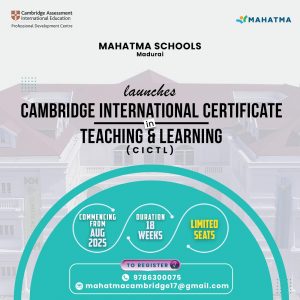From Exams to Career Choices: Navigating Education in India
Navigating education in India is like embarking on a journey with many checkpoints, challenges, and choices. With a strong emphasis on academic achievement, students often find themselves navigating a system that places significant weight on exams and results. However, as crucial as exams are, the path from academic success to meaningful career choices requires far more than just good grades. This blog looks at the journey from exams to career decisions, and how students in India can make the most of their educational journey.
1. The Exam-Centric Culture
From an early age, students in India are encouraged to perform well in exams. The academic year is often structured around periodic assessments, and board exams become significant milestones. For many, the results of Class 10 and Class 12 exams play a crucial role in determining their next steps. High-stakes exams, such as the Joint Entrance Examination (JEE) for engineering, the National Eligibility cum Entrance Test (NEET) for medical fields, and various others for humanities and commerce fields, can determine access to premier institutions. These exams bring immense pressure but also open doors to prestigious programs.
While performing well in exams is important, it’s essential to remember that scores alone do not define one’s potential or future. Exams measure academic knowledge, but they are just one piece of the larger career puzzle.
2. Broadening Horizons Beyond Marks
In recent years, Indian education has seen a shift. Increasingly, there’s a focus on holistic development, critical thinking, and skills beyond academics. Extracurriculars, internships, volunteer work, and participation in sports or arts are now recognized as valuable aspects of a student’s profile.
Exploring these opportunities can help students discover their passions and aptitudes, which can guide them towards a suitable career path. For example, a student might excel academically in biology but discover a real passion for environmental science through projects and activities. Encouraging students to explore different interests fosters growth beyond textbooks and opens doors to career paths they may not have initially considered.
3. Making Informed Career Choices
The diversity of career options today can be overwhelming. Gone are the days when engineering, medicine, and law were the primary career choices. Now, fields like data science, psychology, social work, media, and design are increasingly popular. With an evolving job market, students must be proactive in exploring options that align with their interests, skills, and values.
Here are some strategies that I suggest to help in making informed career choices:
Self-Assessment: Reflecting on strengths, weaknesses, interests, and values is crucial. Tools like aptitude tests, personality assessments, and career counseling can provide valuable insights.
Research: Gathering information about various fields, required qualifications, job prospects, and growth opportunities helps students understand their options better.
Networking and Mentorship: Talking to professionals, teachers, and alumni can provide a realistic picture of different career paths. Mentors can guide students through their experiences and help them avoid common pitfalls.
Internships and Job Shadowing: Real-world experience is invaluable. Internships and job shadowing offer practical exposure, allowing students to gain insights into work environments and tasks.
4. The Role of Parents and Educators
In India, parents and teachers play a significant role in guiding students. Parents often have strong opinions based on their own experiences, while educators provide academic direction. However, it’s essential for both parents and teachers to encourage students to pursue careers that align with their interests and strengths, rather than pushing traditional career choices.
Parents can be supportive by being open to discussions about diverse career paths and understanding that success today is no longer defined by a single profession. Educators, on the other hand, can encourage students to explore various subjects and connect academic learning with practical applications.
5. Embracing Lifelong Learning
In an age of rapid change, the idea of a “job for life” is evolving. Continuous learning, adaptability, and the willingness to reskill are critical for long-term career success. Students should cultivate curiosity and a love for learning, which will serve them well as they navigate both education and career choices.
At last, the journey from exams to career choices in India is multi-faceted, requiring students to excel academically while also exploring their interests and developing skills. By balancing academic achievement with personal growth and career exploration, students can move toward fulfilling careers that align with their passions and strengths. Ultimately, education is a powerful tool, not just for achieving high grades, but for opening doors to a wide range of meaningful careers. Keep navigating!
Praveen Kumar S
XII-A
Mahatma Baba Matric

